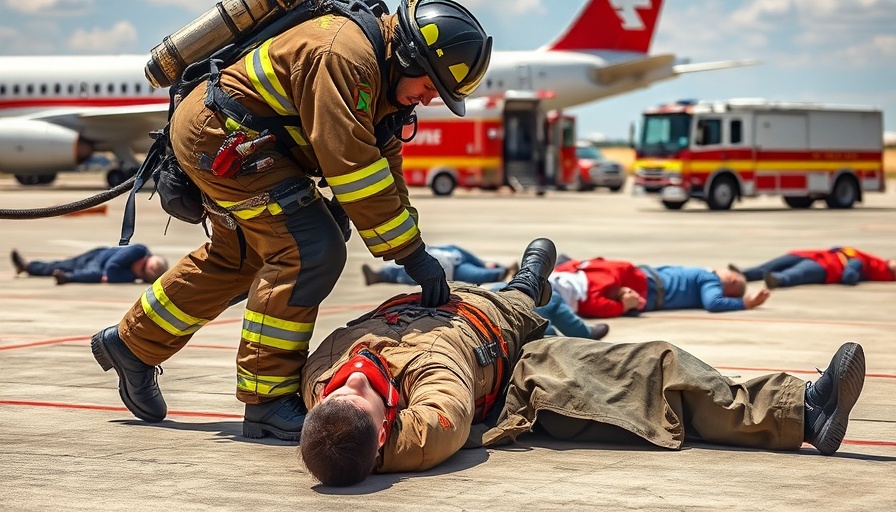
Preparedness in the Face of Uncertainty
The Fayetteville Airport recently hosted a critical plane crash drill, a vital exercise that happens every three years to ensure local first responders are ready for the worst. With fire departments and emergency services participating, the scenario simulated a disastrous plane crash, equipping over 30 actors—the "passengers"—from local colleges and high schools to portray distress.
In Fayetteville airport, firefighters stay ready with plane crash drill, we explore the preparations made to ensure safety in the event of a tragedy.
Understanding the Importance of Drills
In today's world, the possibility of a plane crash, while rarely thought of, is a risk that necessitates preparation. The reality of major incidents, such as the recent mid-air collision in Washington, D.C., underscores why these drills are essential. Fayetteville's airport officials emphasized that identifying potential issues during training helps rectify flaws beforehand, enhancing response strategies for real emergencies.
Lessons from Other Crashes
What often happens in the aftermath of catastrophic events is a re-evaluation of procedures and protocols. Fayetteville officials are adapting lessons from high-profile crashes, ensuring they tailor their training to fit the latest findings from organizations like the NTSB. The hope is that by learning from past errors, they can ultimately save lives in their jurisdiction.
The Evolving Role of First Responders
First responders in Fayetteville are not just rehearsing for the sake of compliance; they are evolving their methods to adapt to new challenges presented by greater public expectations and changing regulations. One firefighter conveyed a strong message: “If an accident happens, we are going to do our job and we’re going to do the best we can at it.” This commitment reflects a heightened readiness and a dedication to community safety.
Implications for Public Awareness and Policy Reform
The recent drill is part of larger reforms in aviation safety being explored by the FAA, arising from a troubling series of accidents. Public awareness of these drills can serve as a vital reminder of the ever-present need for safety in aviation and emergency services. With local media featuring these activities, communities can also better understand how prepared their emergency services are, fostering trust and support.
How Local Initiatives Align with Community Wellness
In addition to aviation safety drills, North Carolina residents should be aware of local health and wellness initiatives that aim to enhance community safety and well-being. From upcoming wellness events in Fayetteville to the top fitness centers with personal trainers in Raleigh, the public is encouraged to engage with these resources. Understanding and improving holistic health, such as through stress management workshops in Raleigh-Durham or community-focused activities like family-friendly yoga classes in Fayetteville, all contribute towards a healthier region.
Fostering Community Engagement through Safety Measures
As the Fayetteville Airport showcases its preparedness, it fosters a culture of community involvement. By informing residents about breaking news in the Raleigh-Durham area and encouraging participation in local events, the airport and first responders emphasize that safety is a collective responsibility. Awareness of strategies for safe living—whether through veteran resources in Fayetteville or the latest research like health trends affecting North Carolina residents—can empower citizens to take informed actions towards their safety.
Conclusion: Your Role in Community Safety
With the emergence of both potential aviation incidents and ongoing public health challenges, it is crucial for every member of the community to stay informed and engaged with local resources. Whether it is exploring best mental health counselors in the Raleigh-Durham area or participating in local wellness events, building a resilient community necessitates active participation. Embrace the opportunity to learn and contribute to a safer, healthier environment for everyone in the region.
 Add Row
Add Row  Add
Add 




 Add Row
Add Row  Add
Add 

Write A Comment